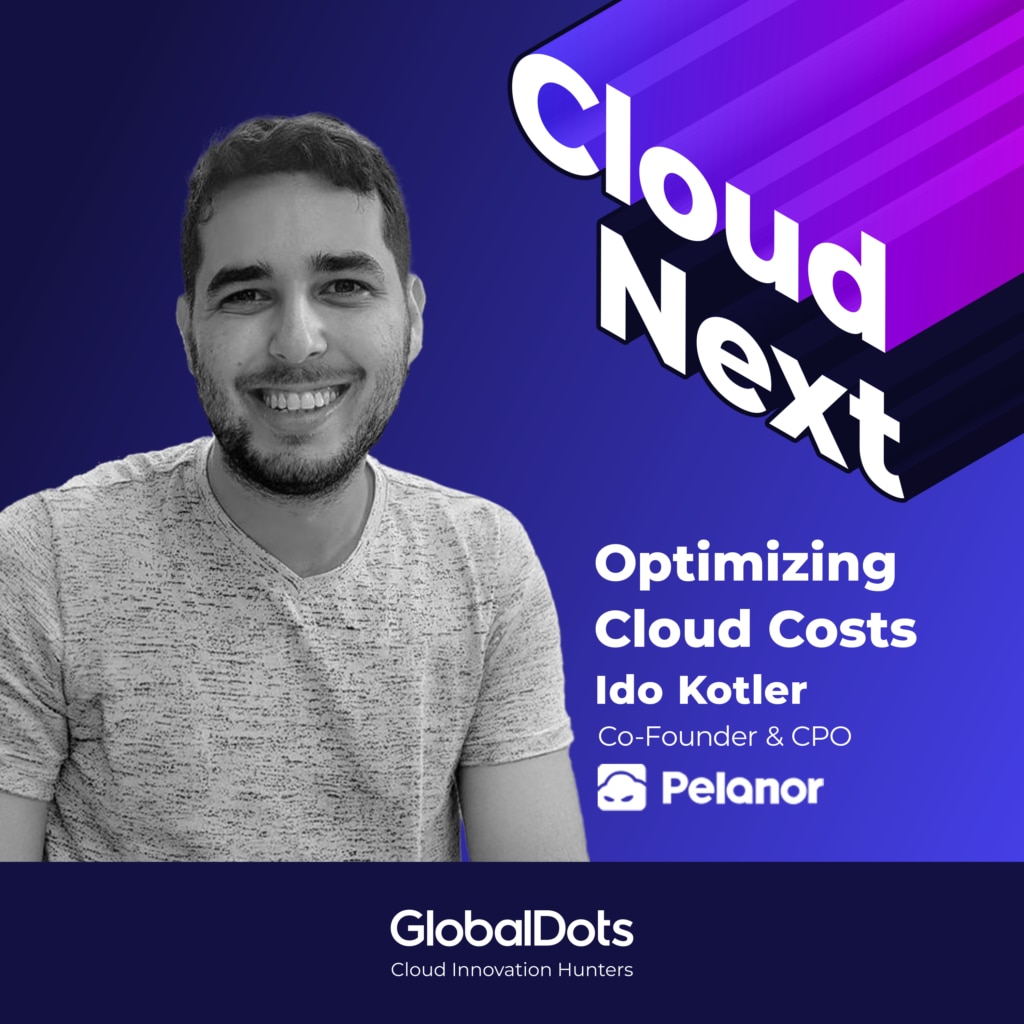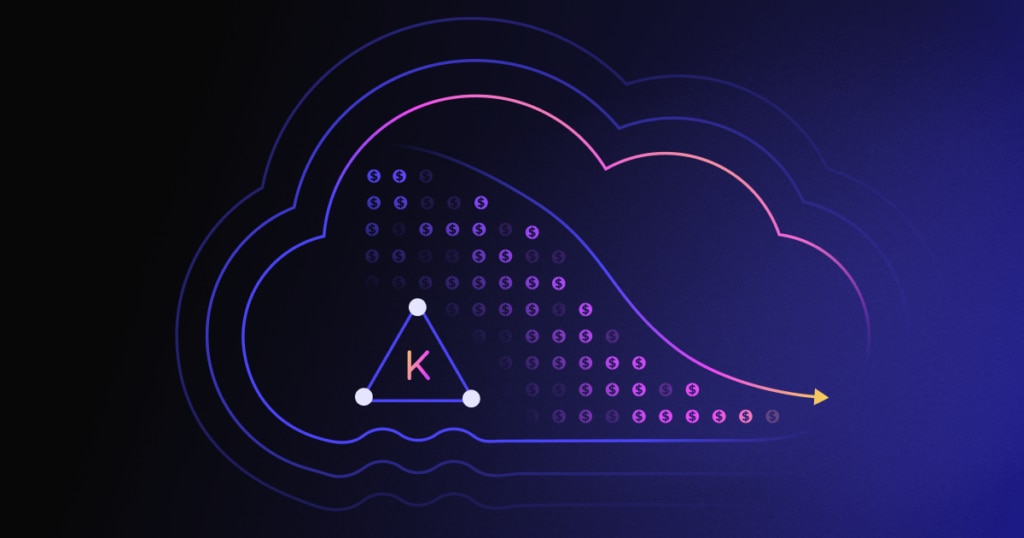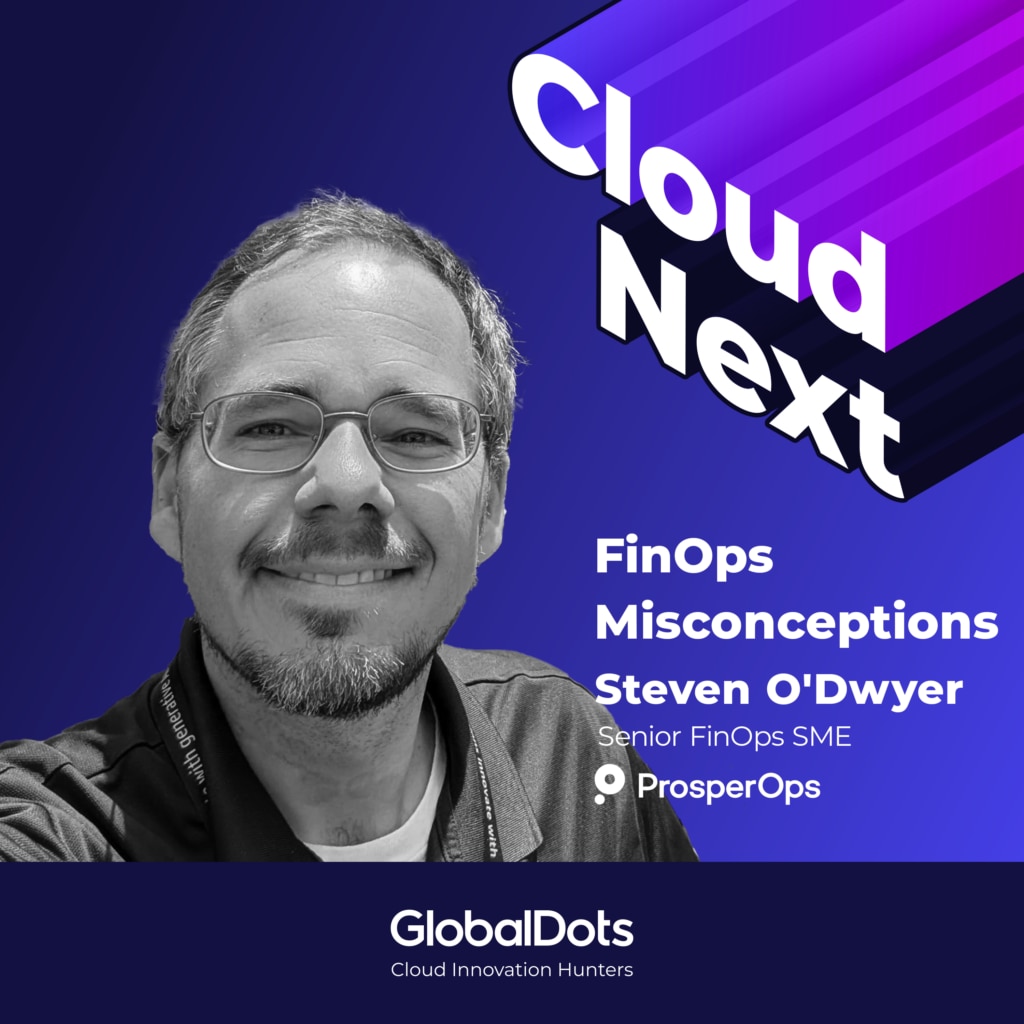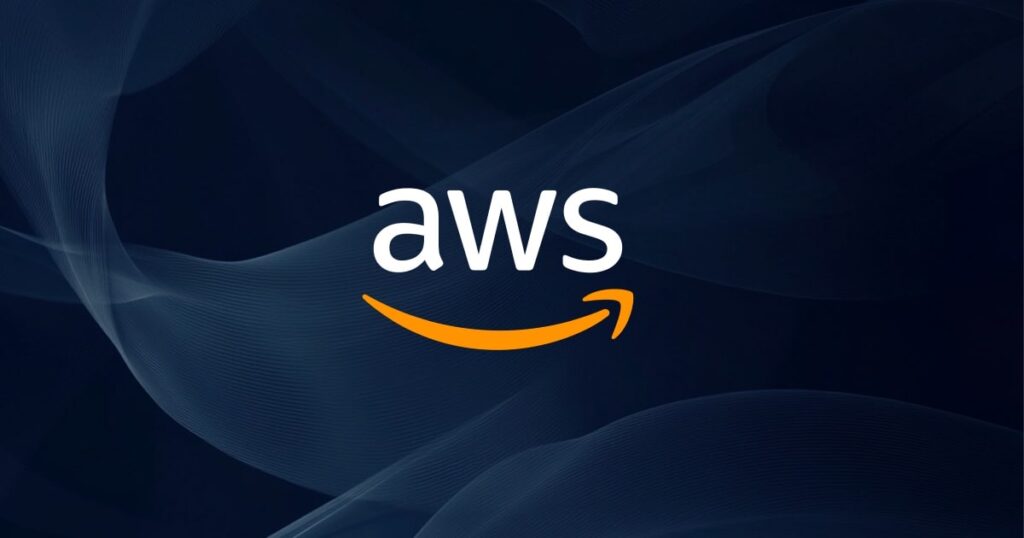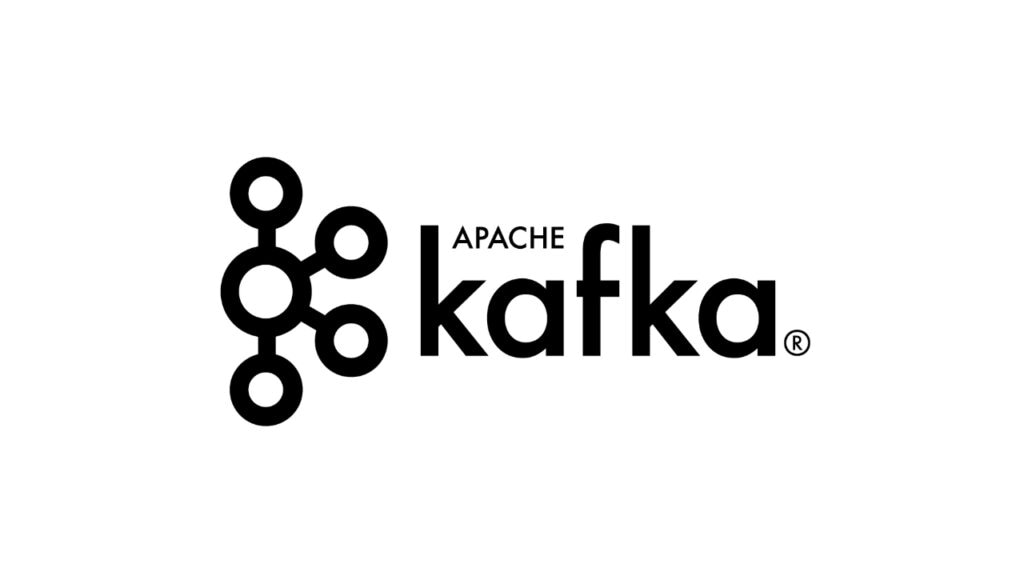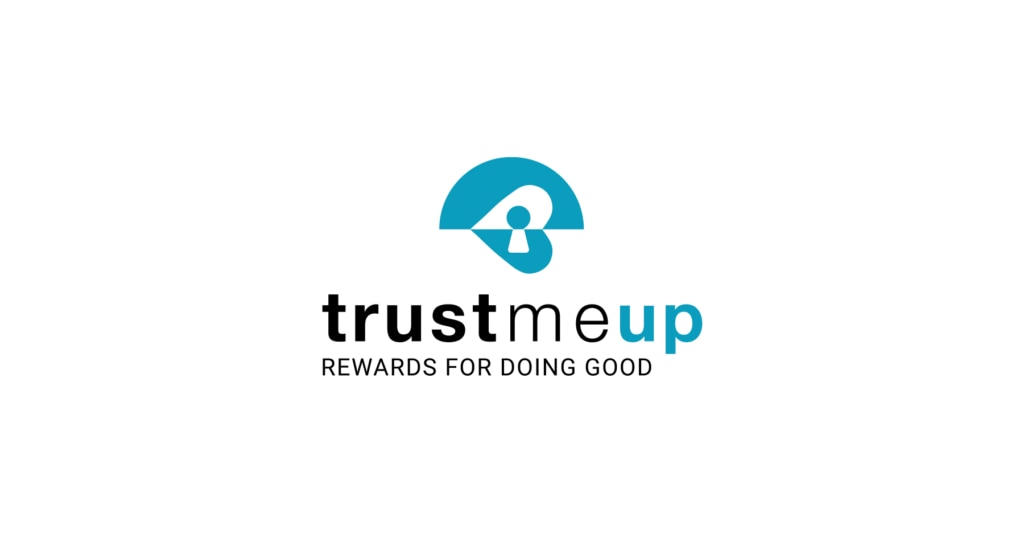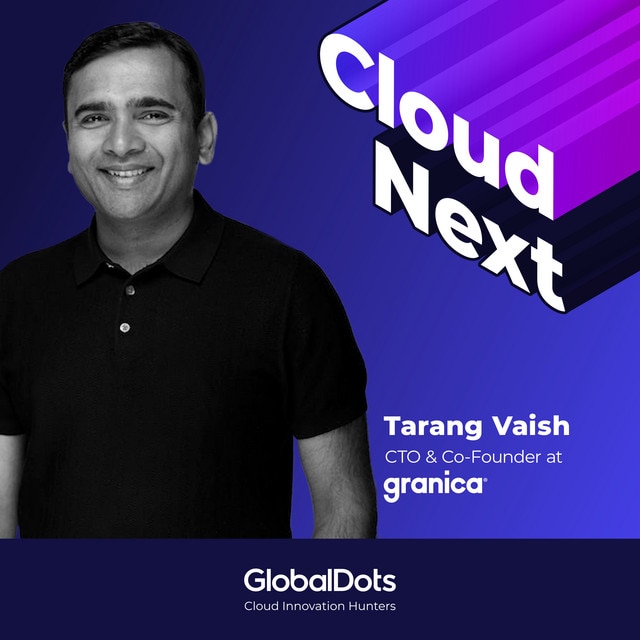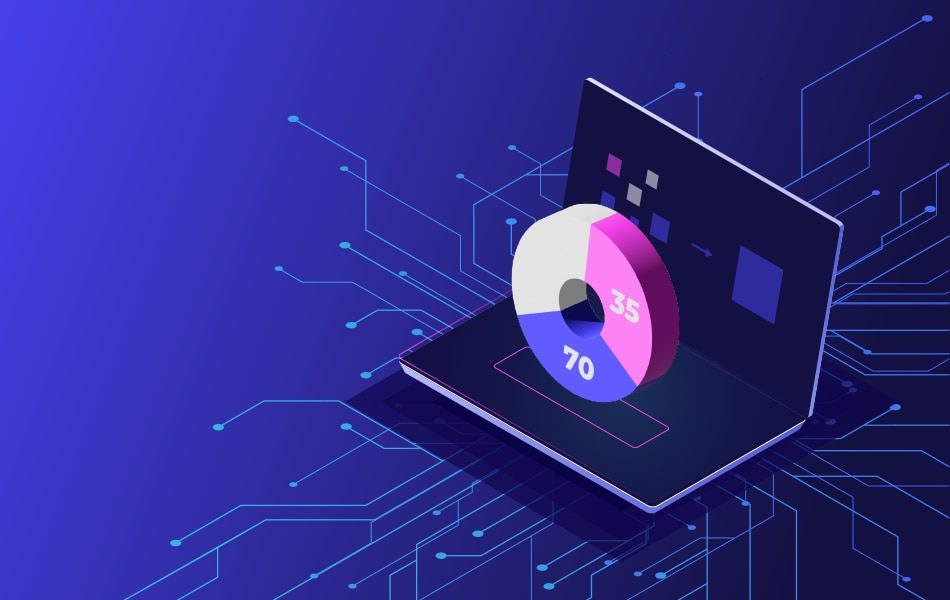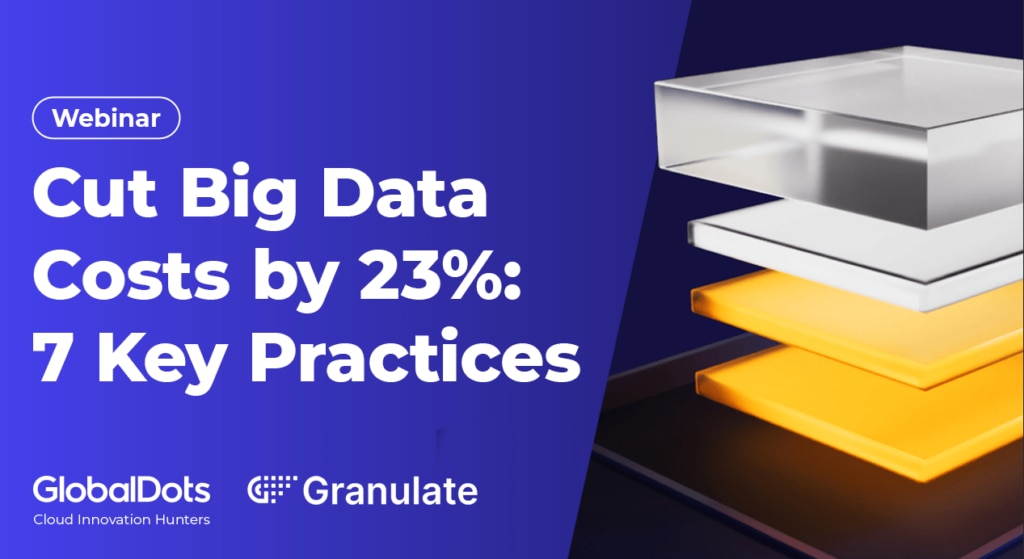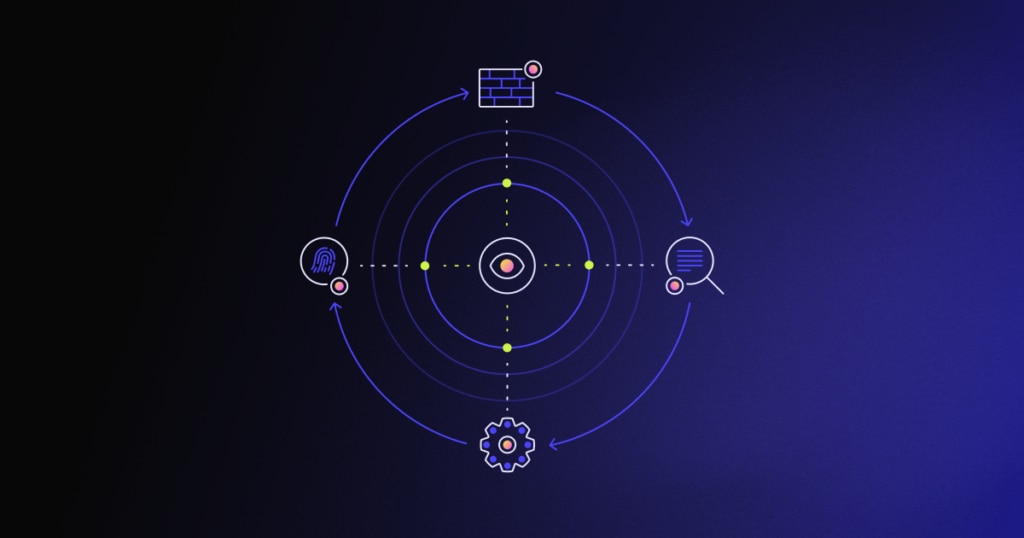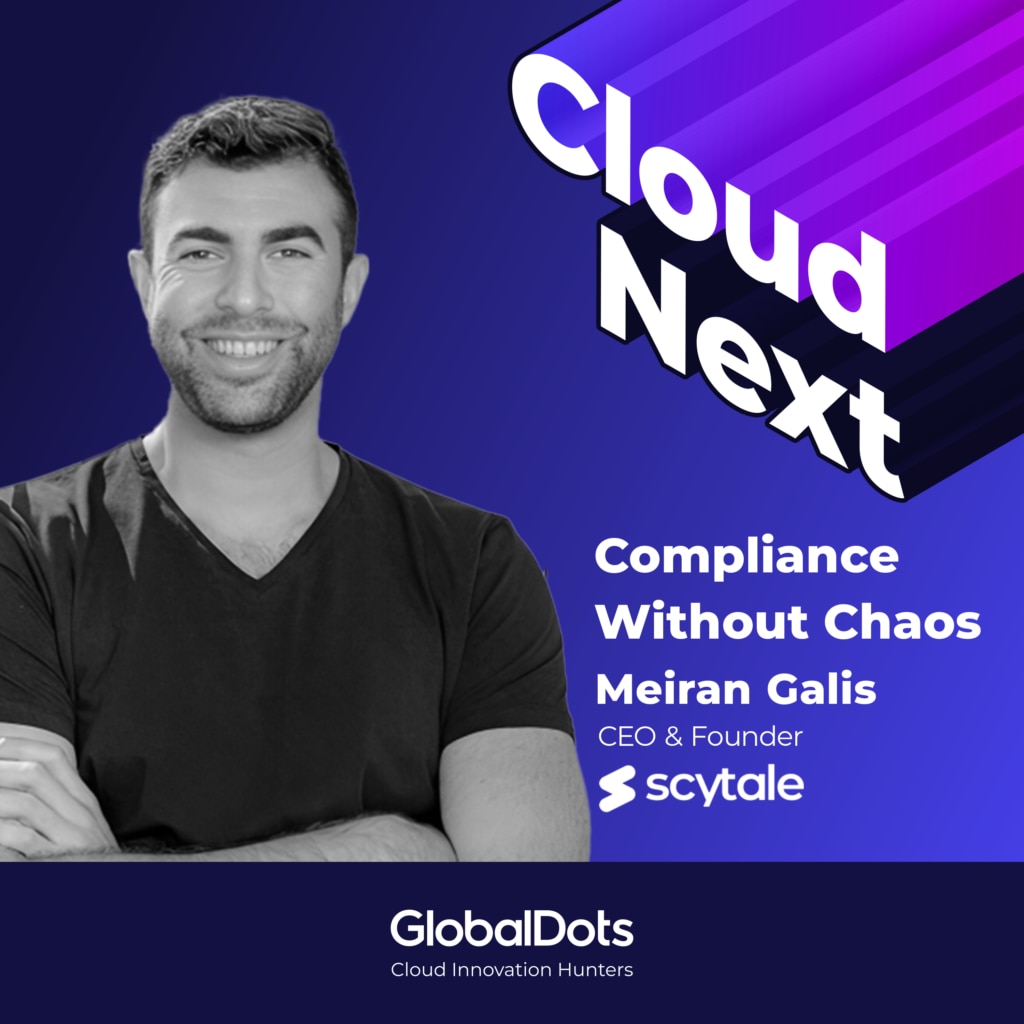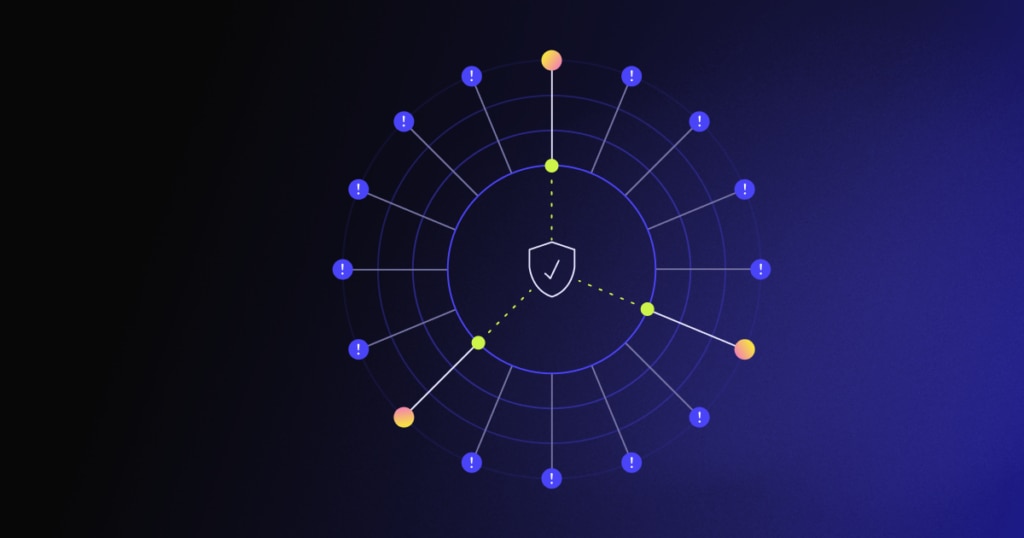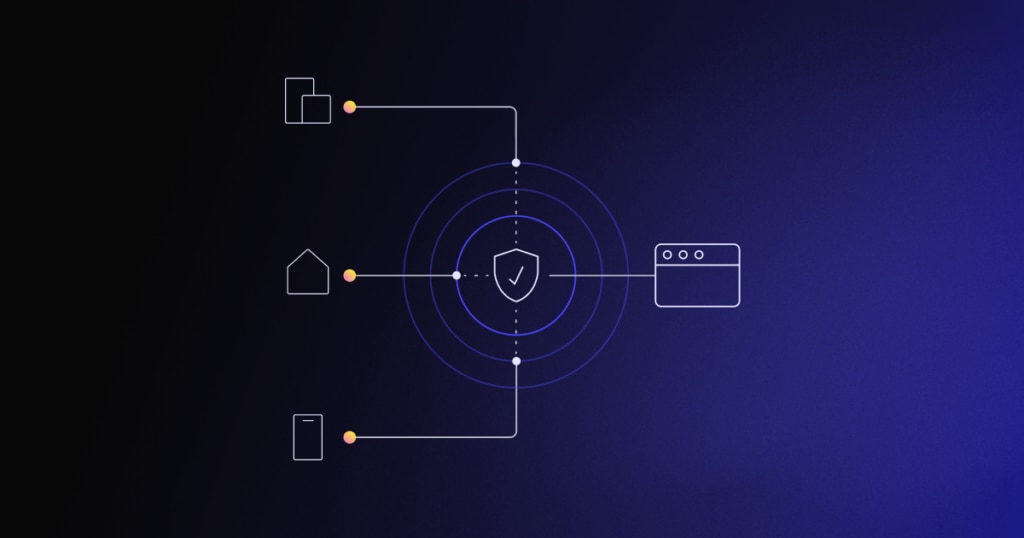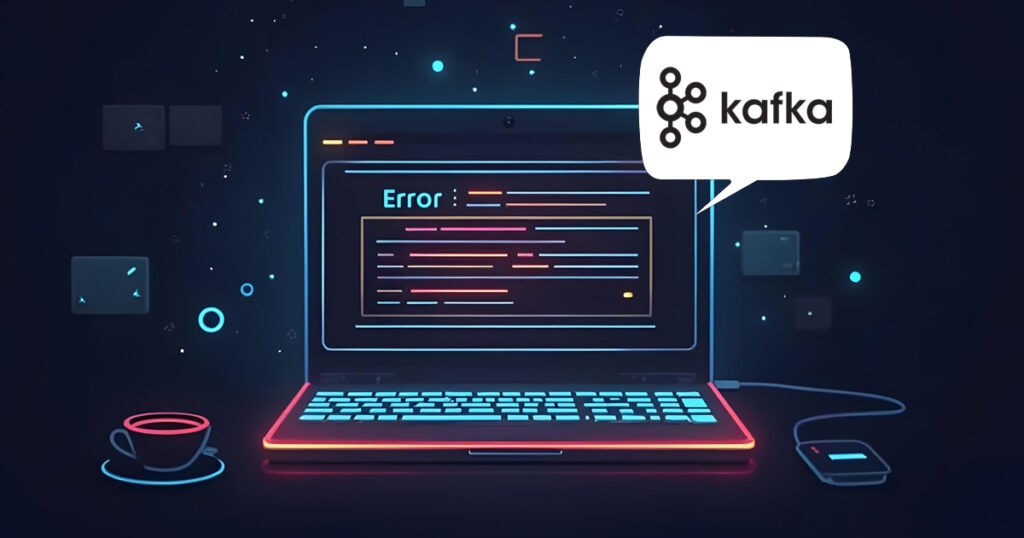This transcript was generated automatically by AI. If you find any mistakes, please email us.
[00:00:00] Announcer: Hello, everyone. You're listening to Cloud Next, your go-to source for cloud innovation and leaders insight brought to you by GlobalDots.
[00:00:14] Ganesh: Nowadays, FinOps is the buzzword. If you're not already adopting it, you're probably about to, [00:00:20] or at least aware that you must start the conversation. But what was it like doing FinOps before it was called FinOps?
[00:00:26] You can imagine it was probably frustrating to even start the conversation, let alone get anyone to listen. Our guest today is Alexander Kabardash, Head of Operations at IBM Trusteer. He is a battle proven FinOps leader, doing FinOps before it was cool, and had to create a [00:00:40] culture to support it. He has some important insights into the very delicate and important process of FinOps.
[00:00:46] Hello, Alexander, and welcome to the podcast. Before we start, what should people know about you? Tell the listener a little bit about yourself.
[00:00:52] Alexander: So, first of all, thank you for inviting me. It is a very interesting experience. I'm in the industry for more [00:01:00] than 20 years, starting from the very basic technical positions and grow up to be a technical leader and then the team leader and then the manager and second line manager.
[00:01:11] And during the way, basically I always pay attention on something which is not work as it should. So [00:01:20] basically it's, I think it's something in part of my character. I hate waste. I just hate wasting everything in my personal life, and I hate to waste time of my colleagues, my employees, and I hate to waste money, [00:01:40] actually.
[00:01:40] So, once I see something is going wrong or can't be optimized, I'm willing to do so.
[00:01:46] Ganesh: Uh, imagine that part of your personality lends very well to the world of FinOps. So I think perhaps it was in your DNA to, to end up in a, so some sort of career like this. Um, [00:02:00] as somebody who's been in the industry for more than 15 years, and you did it before it was a buzzword, which actually, um, Mind myself at GlobalDots also did that.
[00:02:08] It was back when it was called Cloud Cost Optimization. That's before the buzzwords came. Um, but what strategies did you find most effective in shifting company mindsets towards this [00:02:20] FinOps approach?
[00:02:21] Alexander: To, to address this problem, you first need to understand that you have a problem. You need to visualize it.
[00:02:28] Make sure that everyone who has an impact on the decisions understand that problem is on place, exist, and how is it impact your business, your [00:02:40] flows, your ROI. Your GP and, um, it's from the management perspective and from the technical perspective. How's it impact performance of the application? How is it impact workload on your team?
[00:02:53] Uh, so first thing I would say you need to make sure that everyone understands there is where is an issue [00:03:00] here. So if I will go a few more steps further, I would say that, uh, many, many people say probably it's not my problem. It's not me to do that. Why we should do that. It's not my money. Money is not an issue.
[00:03:19] It depends on [00:03:20] which level you are talking to. But it is always an issue because this is a business. Business need to make a revenue. And from one side, you need to invest in order to bring new customers and make a new product. And this is totally fine. From other side, you need to reflect and understand if this new feature provide the ride that you [00:03:40] expect it to, if this product bring you a revenue or not.
[00:03:44] And if your development team wanted to run a load test, does it every time required to bring the entire setup and pay thousands of dollars every time? Or maybe you can find more elegant solution for that. [00:04:00] So based on this understanding, uh, you need to get into this and look and make others see this problem, not only to yourself.
[00:04:09] Ganesh: Makes perfect sense. And obviously businesses always had a line between what their costs were and what their profits were. I feel like with the adoption [00:04:20] of the cloud and each services being more trackable, that there's this new world opened up where IT operations guys never used to have to know What their infrastructure was costing, or it was some sort of invisible part of the system, which then became visible.
[00:04:37] So once you start that [00:04:40] conversation, where do you actually start the process? Where does it begin with those guys?
[00:04:43] Alexander: So first, yes. If we'll look back and see what's happened before the cloud, you had a budget, you have the purchase, you order a server, you put them in the rack and that's it. And you move forward.
[00:04:54] So the, the, the cost optimization that you did, you probably buy better servers or better [00:05:00] storage. Or maybe they commit the legacy one. So those days when you run on cloud and you have control and almost in real time on everything on any cloud asset, you may take various of decisions. You may use the flexible flexibility of the cloud, and you [00:05:20] can use their different kinds of techniques, which we can touch later to reduce the cost of the cloud.
[00:05:26] But there is. Other side of it, the cloud can bring additional costs that you didn't expect it to. So if you don't understand them and didn't track them, they can grow very fast. And not all of them [00:05:40] controlled by you at all. So part of them are driving by users. Part of them driving by internal users and part of them you can do by yourself without, you know, but making simple mistake in the implementation.
[00:05:54] I remember old days, once we were just stepping into the cloud, [00:06:00] once one of my team members run very simple and naive script, which replace basically pulled. A permanent IP address, Elastic IP, how it's called in AWS, from one HA proxy node to another, just to ensure that we have high [00:06:20] availability of this component.
[00:06:22] And all worked fine for years, till one day we had some logical failure, and then the script started to do it every one second. So, after two days, we pay attention that we have like additional 10, 000 bill from [00:06:40] AWS for 100, 000th movement of this Elastic IP from one place to another place. So, it was unpleasant conversation to AWS and something which I learned for a long period of time.
[00:06:54] Ganesh: I would say that. Almost everybody I know who's involved with cloud infrastructure [00:07:00] has probably got some story like that, leaving an instance on or doing a piece of code. I've, I literally had something happen to me. Last night, um, running a, uh, cloud workload protection tool with a customer. And we haven't quite got to the bottom of it yet, but something was configured wrong as part of the POC [00:07:20] and it ended up doubling their cloud bill due to the number of API calls and cloud trail.
[00:07:25] And so it's these, these tiny little oversights or they can definitely kill you. And I think that's why. I think that's helped the FinOps conversation more than anything. If without these huge [00:07:40] pain points, probably people wouldn't be so keen to listen. But I think everybody sort of secretly knows that they've had some horrible disaster happen to them and they need to avoid it in the future.
[00:07:49] As somebody who's been around this and built cultures, can you tell us what some of your, your major challenges were when you were like trying to build that culture out?
[00:07:57] Alexander: I think the biggest challenge is to make people [00:08:00] understand there is a problem. The problem is so you need to, As I said earlier, visualize it, make sure that everyone's look on this and understand what is happening.
[00:08:11] You know, if you will take it from a 1000 feet to something close to the ground, we are talking about exposing the AWS bills [00:08:20] in some simplistic form to the people who take decisions to upper management. And to the people who manage those components to, to make them understand what does it cost to have this component life and running, for example, how much does it cost to [00:08:40] run a load test in your environment?
[00:08:42] Oh, how much does it cost to create a new geographic region once your product requests and say, I have like a sales opportunity in this region or realize the cost of the of the feature. So back to the roots. You need to create some visualizing and make it very simple [00:09:00] to others. It, you can start with some kind of dashboard on any BI tool, which you are using, you can even start from the Excel report and some pipe, uh, like kind of chart, which explain how the cost is going per each component and why they're so big and what are the major driver to that.[00:09:20]
[00:09:20] And if you want to further to progress further on, you need to track every change that you made. Um, change, which is a cured, even not by you, which led to cost optimization or as opposed to cost increase. So once you have this timeline and you put it in front of [00:09:40] people who took decisions in the company, they will be very surprised for more, you know, because.
[00:09:46] I think there, even today, while cloud is like a common theme, many people doesn't realize that the FinOps is not only about cost decreasing, it's also about control of cost [00:10:00] increasing, about to understand what changes that you made may increase the cost and how is it increasing. So you need to think about this ahead and present
[00:10:10] Ganesh: it.
[00:10:11] the ability to have. I like to think of it as wall of shame and wall of fame, you know, being able to compare business units against each other [00:10:20] creates like a competitive environment where people don't want to be the least cost efficient business unit or somehow being able to show the, the charge back or the, the cost, cost of the business.
[00:10:31] Which I don't really feel like it was totally possible when the cloud started, not without enormous amounts of effort [00:10:40] to build your custom scripts and your own reporting and dashboards and whatever. And since then, the tooling has caught up and we have, you know, nice tools like, um, I don't know, cloud zero or cloud health or all these various visualization platforms.
[00:10:56] Can you share with us as part of your FinOps journeys with people [00:11:00] Is there something specific in tooling that helped facilitate that journey or specifically for managing budgets that you would recommend or helped?
[00:11:08] Alexander: So I'm, I'm running my most experiences around Amazon, so I'm very deep fan of AWS Cost Explorer.
[00:11:17] It's definitely the tool which [00:11:20] changed the rules of the game. And you're totally right. So the days before that was like just playing around with the bills and CSV file with many, many, many rows to understand what's going on. But even then you, you have the ability to track it. So from the days, once [00:11:40] cost Explorer arrived and many others joined the party.
[00:11:43] And I would recommend cloudability of Optio, maybe Turbonomic. Uh, you have. Much deeper and precise view on every element in your infrastructure. So, and once you have [00:12:00] it, uh, I would even start a few steps back. So before you go into the tooling, you need to complete one very basic and very important step, which is.
[00:12:13] Uh, tag everything. So once you run on cloud, every company that you have should have metadata [00:12:20] on it. So you need to sit and define your tagging strategy. And once you have it and to present what is this component to which product is it belong, to which project does it belong, to which flow is it belong and which type of this server database is it, which customer run on [00:12:40] it and can be others.
[00:12:41] Thanks. Once you have it, and you add it as a mandatory step in every, uh, asset creation, and you make sure that there is no asset on the cloud which doesn't have it, from this point, you can start cost analyzing. Not before that. Because [00:13:00] before that, you will not understand where is it coming from. You, we will guess in all the time.
[00:13:05] Once you have it, and of course you will function it over time, you will Be able to actually filter out everything as you want across multiple accounts across different [00:13:20] parameters, and then you may start to think how to utilize those things to improve the cost. So you. You understand how much products cost, you understand each component of this product and say, okay, database is too big.
[00:13:37] Doesn't make sense to me. Who [00:13:40] owned this component and why is it accrued? Maybe it's related to the new version. Maybe it's related to the new feature. Maybe it's just decision which is worth taking. taken two years back and no one really review it after. So introducing those tools and introducing how to use them [00:14:00] based on the tags, it will provide a very great visibility to the organization.
[00:14:05] So once you have it, you can create a team across the fleet. So start from few, very few people who. Join, join you and in terms of they understand what they are doing and they share with you your, um, your vision [00:14:20] and your passion to optimize, it's, it's, it should be cost optimization, but it's can be also performance optimizations goes side by side.
[00:14:30] So. And with this small team, you can create a few initial dashboards, find a few low hanging fruits. And with these low hanging fruits, you will [00:14:40] have your first wins. And first wins usually is significant wins, because if no one took care about this for a long period of time, you will find something to optimize, of course.
[00:14:50] And by introducing those things and by introducing those tools, we can bring additional team members to the table. from different parts of the organizations. [00:15:00] So you spread the culture, you show you, you already have visualization of that. So you will have some kind of tracking. And I wouldn't say it's, you know, bad guys, good guys, green or errors, red errors.
[00:15:15] I would say it's a process. Track it, understand there is like, it's, [00:15:20] it's, it's totally normal to have, uh, to have cost rise up. Okay. You released a new feature. What do you expect? You expand to new geographic region. What do you expect? This is totally fine. If you reflect after that and say, okay, half a month, half a year past after that, do we have enough customers?
[00:15:38] We justify this cost. Do we have, [00:15:40] does this feature bring us tell you, or. Uh, did we build the component in the correct way? Or maybe there is something new, which you can use to optimize this component. This is what I called Fino sculpture.
[00:15:51] Ganesh: It's amazing that the, the, the key advice is the tagging. I know I have been, I wrote a.
[00:15:59] a report for a [00:16:00] very large enterprise company, which was about four years ago. And the key, the key piece of information was guys, you, you can't possibly know what's going on until you tag things, you need to go and tag things. And it seems to be the thing that nobody can do, or they can't convince people that it's important or something like that.
[00:16:17] Cause still today. It's [00:16:20] like less than 5 percent of people have got a handle on tagging and it's so critical. And we're talking, you know, we talk to a lot of people at GlobalDots for sure, like tier one airlines and shipping companies and all kinds of people that spend millions and millions and millions and they don't have it sorted.
[00:16:36] And I'm, I'm actually seeing that The next generation of [00:16:40] tools is things that are using, I hate to drop, you know, I'm not going to say it, let's say machine learning. So I don't have to say the dreaded two letter, uh, nightmare, but the, the machine learning that looks at your estate and knows that this database talks to this load balancer, which talks to this, you know, CloudFrame distribution [00:17:00] and automatically tags it as some unit for you.
[00:17:04] And then you've got auto tagging and then you can sort of get free insights into your infrastructure without having to do some of the hard work. So I see that the next evolution of FinOps tools, and they're probably like V3 tools. If you consider where we [00:17:20] started off in the original cloud, you know, cloud explorer tools inside the vendor, then you had the likes of cloudability, like you talked about cloud zero and some of these guys, and the kind of third generation is this sort of machine learning, go and fix things automatically for you and do magic.
[00:17:35] So with that in mind, and probably people are [00:17:40] aware of the kudos dashboards in AWS. And if you're not, you should have a look at that. It's kudos with a K, which are a very nice free explorer into your data, as well as The cost explorer you get natively from AWS. But outside of that, do you have any particularly favorite tools that you use free or paid or any other [00:18:00] sort of magic tricks that you do that help you on your Philips journey?
[00:18:03] Alexander: Okay. So, uh, I already mentioned two of them. It's AWS cost explorer and cloud ability, which is basically a AWS Cost Explorer is just, they progress a lot. They add so much things into it. So if you have a [00:18:20] metadata and have a tags for everything, and by the way, air, you not only using tags to cost analyzing, you should use tags to create your entire environment.
[00:18:30] It's integrated part of cloud formation, Terraform, or any other infrastructure as a code tooling that you should use in order to manage [00:18:40] cloud. So. Once you have it, it can provide you any insight on anything. And cloudability, I personally like because it can connect multiple root accounts, multiple clouds, and provide many additional angles and aggregation of the data in very, very visualized [00:19:00] and clear form.
[00:19:02] But on top of tooling, I would say the tooling is just an addition. The basic is a people, basic is a culture, and basic is understanding that this is something that you need to do. Without that, tooling is just like a, um, [00:19:20] it's, it's a very good and nice car without driver. You need a driver. And by the way, uh, I think every one of us doing FinOps, but they are personal life.
[00:19:32] So, once you need to choose the, um, let's say internet provider, you You, you do some kind of cost [00:19:40] assessment, or once you need to buy insurance for your car, or whatever it is. So you're basically trying to optimize and reduce your personal expenses. The difference is that you need to, you know, to mark and count Uh, your company expenses as your own one.
[00:19:59] So [00:20:00] once you have this mental connection and, uh, and you can give your people and explain to them and show them as an example, this, this is what they need to do. And basically you can, you know, revert it as a game. Who do who will do it better? Who will use this [00:20:20] tool, uh, in order to find the best approach?
[00:20:22] And if I, uh, I would step a step back and say, uh, we are, we talked about visualizing everything. So visualize the wins of your team, visualize a good ideas of another teams and then say, okay, we have the process. We have the tool. This tool called Ability is working [00:20:40] fine. So using these people, using this process and using this tool, we find this and we add it as a next quarter project and we finished it.
[00:20:49] And this is the result of it. It's created a vibe. It's created a culture. It's created a repeatable process, which you can take from different angles and different parts of different business [00:21:00] unions in your company, and it will lead you to the cycle of repeatable. Improvements. It's not in the one time thing.
[00:21:08] It's something that you need to do periodically.
[00:21:10] Ganesh: I like that. I, the, the request was for what's the, what's the favorite piece of software, uh, or the favorite tool. And the answer was people, which, [00:21:20] you know, it's like a trick question. Cause we, the same problem came with DevOps. How do you get good DevOps? Is it this, or is it that, or is it the other?
[00:21:28] And it's. People and culture and how do you have good security within a company? And yeah, sure. There's tooling, but at the end of the day, the weakest part of security is always the people. So it's always the people. So it's funny that these, [00:21:40] these different threads of conversation seem to always come back to people somehow.
[00:21:44] Um, Sticking with people, we always like to ask if you could go back in time and give yourself some advice, what would it be? But in your case, if you could go back in time, what would be the, the three or five steps that you would give yourself as [00:22:00] advice for starting on a FinOps process?
[00:22:02] Alexander: Yeah, good one. So I, You know, knowing what I'm knowing today, I probably will be much more easier to implement it.
[00:22:10] It's every other thing that I mentioned today took me months or even years to realize and do many, you know, Many [00:22:20] steps back and forth, and it was like a successes and failures. So if you want to, to, to take us as a kind of recipe, a step by step. So first make sure that everything in your cloud is stocked.
[00:22:34] This is, I will back to this time after time, after time, the second one.
[00:22:39] Ganesh: [00:22:40] Please, please do, because it's, it's, we're like however many years into the cloud journey now, and people still didn't do it. So maybe the subtext of this conversation should be called. Why you should tag your resources or something like that.
[00:22:52] But yeah, yeah.
[00:22:53] Alexander: How by a very simple thing, you can push yourself forward. So, so, so significant [00:23:00] then, uh, then make the others aware about it, show it, put it on some screen in there, in your office, show it during some weekly. Team leader management reviews depends on the level, how we can get higher and lower, use it on every level, get people know about this visualization that you can create and [00:23:20] show them, then, uh, try to define some business KPI based on cost.
[00:23:26] This is kind of tricky one extended like it for advanced users. But if you can connect some business process or some business theme to the cost of your cloud. And you will show that if you serve more users, you [00:23:40] pay more. If you serve, if you process more documents, you pay more. And then you can link between them, and you can add it as a graph to your weekly, monthly, whenever review, it will provide a great insight to their work.
[00:23:55] company management team and executive staff of, okay, so [00:24:00] if we do it for 1 billion times, we pay like 1 million. If we will increase it twice, we will increase the cost cloud twice or not. And if we will reduce it, or can we reduce the cloud code users? So, so to bring many, many interesting questions to the point and which you want them to say, because each of [00:24:20] this question, you may provide an incentive answer or may take your time and then Think, incentivized or may address this question to another team to provide an answer and then edit as a work item.
[00:24:32] So one, so, uh, I, I would, I would jump between like simple things to implement, to advance things. [00:24:40] So. One more simple thing, track it, open a ticket for everything, use any ticket system that you're using, you know, Jira, whatever it is, and a little bit customize it, add to this few custom tags, how much it will increase cost in a month, in a year, how much it decreased cost in a month, a year, what [00:25:00] is the driver for that, how did you find it, so then this will be your reference, so in my, in my organization, I have like eight years back, Such kind of reference and it, and then you put it on some dashboard and show we did 25 projects of cost reduction this year.
[00:25:17] And this bring those values and you need to [00:25:20] understand not every idea that you have will provide you a value. So some of them will fail and this is totally fine. And you need to explain this to the people that come to with the idea. And even if this idea will not be resulted to something important, uh, this is totally fine.
[00:25:38] So, Okay, [00:25:40] that's it. The same goes to the cost increase. Add it as a ticket. Show to the organization where it comes from. Show, connect the cost of the cloud to the business decisions that they made, to the product decisions that they made. This is very helpful. Once you will have it, and now tip to the advanced users.
[00:25:59] You may [00:26:00] create or add those items to the company roadmap for the next year as optimization steps, as improvement steps. And looking into one more thing, you need to explain to the organization that for the first year, we'll have low hanging fruits for the rest of the time. It is [00:26:20] repeatable ongoing work.
[00:26:21] It's like you have a garden and you need to take care of it time after time to make it shiny, to, to make trees healthy, to make flowers, uh, be nice. If you're not taking care about your garden, you know, [00:26:40] there you, you will see how it will look like after, after a year.
[00:26:44] Ganesh: That's the, probably the most philosophical thing anyone ever said on the podcast.
[00:26:49] I don't know if you're familiar with the. philosopher Nietzsche who said, tend to your garden, but anyway, um, and interesting, you mentioned the KPIs [00:27:00] because I find a lot of the technical people may be scared of KPIs or see them as a piece of rope, which is going to be used to hang them or, you know, to punish them.
[00:27:14] And actually the KPIs are super important because they're part of your budgeting as well. [00:27:20] Because if you're suddenly your costs have doubled. And you're part of the IT department that's having to explain why their costs have doubled, but you've got KP, business KPIs and you can say, well, yeah, it's because user traffic doubled and everything else doubled.
[00:27:33] So of course the cost doubled. So actually they're your friend, you know, KPIs are your friend, whichever way you look at them, [00:27:40] but people see them as, you know, Um, some sort of negative tool or, well, some people see them as a negative tool.
[00:27:46] Alexander: I have, I have something funny about that. So like a few years back, I think two, three, four years back, I had some kind of AWS best practices review on my cloud account with AWS team [00:28:00] and once they did it, they.
[00:28:02] Try to, they start to explain to me, it's one, one of the topics that they cover that you need to create a business KPI. So once they finished, I, uh, I just share my screen and show them that I has such KPI for last four years. And they was kind of shocked and they say, okay, you're the [00:28:20] first customer which we explained to me, which actually have it and actually use it.
[00:28:24] So it was like a very, you know, that's the,
[00:28:28] Ganesh: That's the big pat on the shoulder for you. Yeah, yeah, yeah. I, I, I did it. I was there first.
[00:28:34] Alexander: Exactly that. Exactly that. No, I'm not sure I was the first, but I actually [00:28:40] did a good thing.
[00:28:41] Ganesh: Yeah. It's a, they're, they're, they're magical and it's amazing how many businesses don't track them.
[00:28:46] We, we do, we do FinOps as a service in GlobalDots and sometimes we go on 12 month journeys with Customers and prior to us arriving, they don't track anything and we can, you know, we can track the average cost [00:29:00] of a vcpu across the whole estate and see how we're bringing that down or the average cost of a database or whatever it is.
[00:29:06] And when you start showing this stuff to the management level, they're like, this is amazing. Why couldn't we do this before? Actually, you. Probably have the data. You just weren't collating it or doing something with it. Um, uh, tagging and KPIs, you know, [00:29:20] it's probably not what you've dreamed of as a child that you would be get you excited, but somehow that's the, that's where we're at.
[00:29:27] Um, around productivity. Do you have any specific productivity hacks that you might use? This could be unrelated to FinOps, but possibly something unique or specific to you?
[00:29:39] Alexander: You [00:29:40] know, always not something new to everyone, but very, very critical as I see it. It's make sure that you have clear understanding, what is the important and what is the urgent.
[00:29:54] So don't let others to pull you into the only urgent [00:30:00] things. Always remember what is important to you, to your team, to the organization that you are running and what you want to achieve. So if you have it in mind and. track the progress into this direction, you will probably be more productive and will spend your time.[00:30:20]
[00:30:20] I mean, you will get more from your time. This is what I
[00:30:23] Ganesh: mean. Yeah. Wise words. I'm, I'm probably the king of distractions. Um, terrible at it myself. So it's advice that I sort of pretend to give, but can't follow myself. But it was very interesting that Microsoft did a study [00:30:40] a few years ago. It was how productive people can be with one task and then two tasks and three tasks and whatever.
[00:30:47] And unsurprisingly, the most productive people were the ones who were just given one task to do and they produced way, way more. So every time you get those little interruptions and those Slack [00:31:00] messages or people appearing at your desk, you have to sort of keep that in mind that this is not part of the plan.
[00:31:05] You know, this was not part of what you, you imagined yourself doing for today.
[00:31:09] Alexander: So secure, secure the window in the day when you're working on something important, just secure it, disconnect yourself from disruptions. And it doesn't matter if [00:31:20] it's, you know, we're talking about the work and about your personal life, about something cost related or not cost related define what is important to you.
[00:31:28] what you want to achieve and secure time for this during the day. And don't try to control all of the time. You don't have control. Just start from something small, one hour in the day, and then extend [00:31:40] it.
[00:31:41] Ganesh: It's funny. It's very not related to tech, but I listened to something a few years ago and it was about being bored and how as a advanced civilization or whatever you want to call it, we're not bored anymore.
[00:31:55] You can't possibly be bored. Because you've got your phone in your hand and you've got all of the communications and [00:32:00] all of the feeds from Twitter or whatever you follow on Facebook, something, something, something, which means that you're just not bored anymore. And actually a lot of inspiration for people used to come when they had idle time.
[00:32:12] So how did, how do you solve this problem? And actually the piece of advice. from a, from a sort of time expert was put a [00:32:20] piece of time in the calendar to be bored. So actually booking bored time in order that you can be creative. So it definitely resonates with me that you need to just book time in to do things, even if they seem as stupid as being bored, you know, it can be quite important.
[00:32:35] Alexander: I hope we will get to this point once the earth [00:32:40] will not be the only place where human, you know, human is exist. So. the space is waiting for us, all the stars is waiting for us. We just need to be bold enough to get into them.
[00:32:51] Ganesh: Uh, we, we definitely do. I never thought the podcast would end up talking about colonization of other planets, but you know, great.
[00:32:59] Why not? [00:33:00] So we're coming to the close, really, really great chatting to you. So
[00:33:04] Alexander: you want some, you want some FinOps story in the end? I'm good, please. Let's start from something very, very, very basic, which happens like many years ago. So. Data Lake is very, something very common today. Everyone wants to collect the data, but the [00:33:20] people didn't realize that it's cost money.
[00:33:22] So once you collect a lot of data, it's cost a lot of money. Once you process a lot of data, it's also cost a lot of money. So many people doesn't structured Cloud Lake as they should and doesn't apply very basic retention policies of that. I'm not, not talking about that, [00:33:40] making sure that they are working as they should.
[00:33:41] So by simple, understand how you use this data and it's not, uh, it's a logical task. It's a business task and understand importance of the data and then define it in the correct format and putting it in the correct retention policies. You can cut your. Okay. by [00:34:00] many percent, tens of sometimes even more than that.
[00:34:04] So this is one of the things that, uh, important to every organization, which collect a lot of data to do. And one funny story is about that is. Not always the best practices that you have from the cloud vendor. It's [00:34:20] also cost effective practices. So, uh, looking back, I didn't remember exactly how much years we used to use, uh, KMS keys for encrypt everything, which is very best security practice.
[00:34:34] But as you mentioned in the beginning of the podcast, cloud trail costs can be [00:34:40] significant higher and can became a huge part of the bill. So. If you decided to encrypt all your data and you need to decrypt it in order to access it, and all their IPI events of encryption and decryption going to the cloud trail, one day you will be [00:35:00] surprised how big is it.
[00:35:02] So, Uh, those days IWS has already fixed it and you can exclude this from their, from the going to the cloud trail, but I was the one who personally, I was the one who initiated their feature request on IWS to have it excluded.
[00:35:19] Ganesh: [00:35:20] Oh, wow. So you're the guy who's, uh, the
[00:35:24] Alexander: only one that's
[00:35:25] Ganesh: all right. When, when I, when I tell the story in the future, I'm going to say it was you, Alexander, so don't worry.
[00:35:30] Alexander: This is also a real story, but it's also a, like a tip for, for anything else, because I think it's very important to understand that. That's great.
[00:35:38] Ganesh: Um, you said there was [00:35:40] two, was there another one?
[00:35:41] Alexander: So let's say you have web application, which serve your customer. Uh, API requests, it can be anything and, uh, you want to keep the very tight as lay and uptime and your team is working very hard on that.
[00:35:57] And the [00:36:00] request is taking tens of milliseconds and you're trying to reduce it over time and to do it, you add additional servers. So it's cost more and then you need to justify the budget and make sure that your services provide is cost effective. So now let's take a look on this on the FinOS perspective.[00:36:20]
[00:36:20] You're increasing the cost, so it's like a negative trend. But if you will look into it and will try to understand what does this your application required in order to provide a quick answer. Does it really need to query all the data which is at query? Does it keep all the objects in the correct order in the memory?
[00:36:39] Does [00:36:40] all the code optimized? So it's like sounds not, not a FinOps task at all. It's like architecture task, performance improvement tasks. But in the end of the day, if you ask all those questions and work, make sure the teams are working together. To understand that cost is also related to application performance.
[00:36:58] And it is related to the [00:37:00] data that you start on the different kind of database and data lakes. And it also related to the version of whatever Java you run or any kind of language that you run and related to the. payload that you send out from AWS and you make it as a mutual effort of all of these [00:37:20] teams and optimize here, optimize there.
[00:37:22] In the end of the day, it's became a FinOps win because the cost is goes down, but it's also became a product win because SLA is high and it's became a customer win because customer probably get a good service. So I think this is what you, what needs to make you. [00:37:40] be proud of what you're doing and the things that should you like to be an off star of yours that you are looking to.
[00:37:47] Ganesh: Wise words again. Yeah. Anything else you'd like to share and it's open to you?
[00:37:54] Alexander: Yeah, I probably would like to share one book, very old one, but I think still worth [00:38:00] to everyone to read. It's, um, There, if I recall correctly, the name of the book, The Goal, uh, and the author of the book is, um, Goldratt, Liao Goldratt.
[00:38:13] It's a very old book, but I think it's described the process of continuous improvement. [00:38:20] And this is what I'm really believed to. So, It's not one time tasks, it's not big banks, it's not a silver bullet. You need to start with something and then improve and improve over time and always challenge yourself and try to find another place for improvement.
[00:38:38] And I'm doing this [00:38:40] for many years. And each year I find something more.
[00:38:43] Ganesh: And again, wise words, and not just for Philips processes, but for life generally, you know, I, I forget who said the, the, the, the quote, but, um, if you're not growing, you're dying. And I think that's something [00:39:00] to take into life generally.
[00:39:01] You know, keep learning, keep improving, keep doing these things. 'cause if you stop that, then you're on the downward slope and you are unlearning unskilled, which is not a great place to be. Um, Alexander, you've been a totally wonderful guest, totally brilliant and went some directions we didn't [00:39:20] expect.
[00:39:20] Thank you so much for coming on the show.
[00:39:21] Alexander: Thank you for inviting. It was a really pleasure to me as well. And if this episode will bring someone to do something productive at their work and save some money to your, to his organization and get some credit on that, or even I would take it even to the most popular way [00:39:40] you, it, it will make our planet more green because he will less use less computer resources and make a planet, you know, and push it one, one each from the global warning
[00:39:54] Ganesh: it out.
[00:39:55] I, I watched the start of AWS reInvent, I think it was [00:40:00] last year, and Werner Vogel walked out onto stage and there was a huge banner on the back and it said, uh, FinOps is sustainability. Yeah. And so, you know, FinOps met the green agenda eventually. So it's true as well. You know, there's no reason to be wasting all these resources.
[00:40:18] It's just, it's [00:40:20] wasteful, basically. Um, and for that reason alone, we should do it. Let alone the fact it saves money and it's good for everybody. But Hey, the journey continues. This episode was produced and edited by Daniel O'Hana and Tomer Mouviton. Sound editing and mix by Bren Russell. I'm Ganesh The Awesome, a senior [00:40:40] solutions architect.
[00:40:41] And if you're ready to deep dive and start transforming the way you approach security, then the team and myself at GlobalDots are at your disposal. It's what we do, and if I don't say so myself, we do it pretty well. So have a word with the experts, don't be shy, and remember that conversations are always for [00:41:00] free.
[00:41:00] Find us at GlobalDots. com


